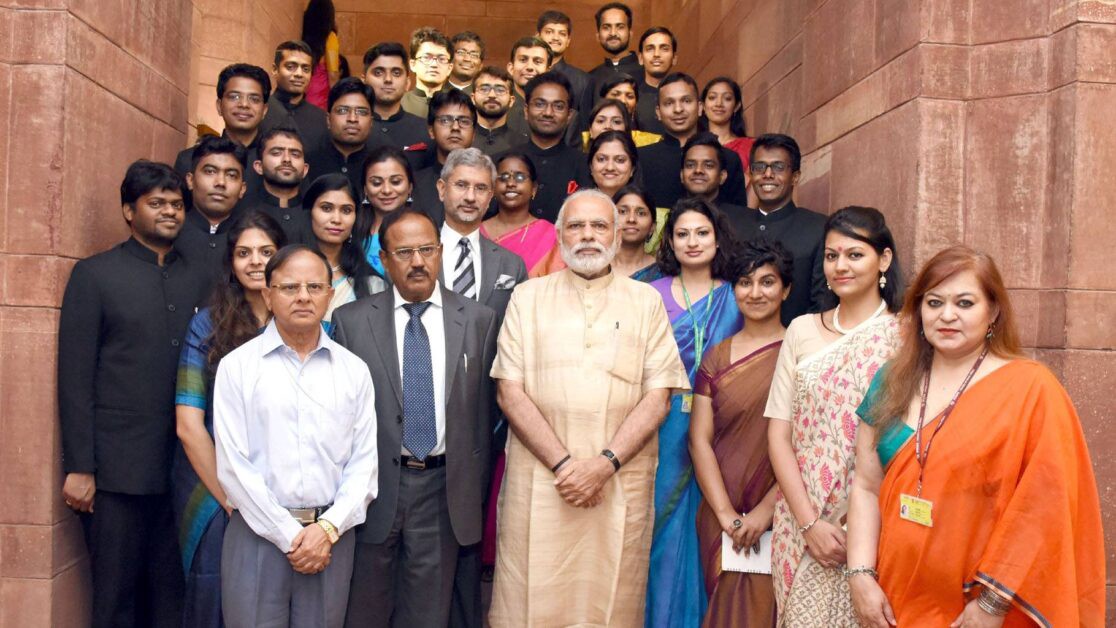The Indian Foreign Service (IFS) is a part of the Central Civil Services of the country. IFS members represent their country in front of the international community. The Indian Foreign Service is entirely different from all the other civil services because it deals with trade, diplomacy, and cultural relations.
The primary mission of IFS is to frame foreign policies in India and manage Indian missions abroad. In recent years, it has been noticed that the intake in the Indian Foreign Service has increased to 30–35 people annually. And the main criteria to get into IFS is that you must clear the Indian Foreign Service Exam. So let us move ahead in this article and understand the complete guide for this exam.

What is an Indian Foreign Service Exam?
The IFS exams are conducted by the government recruitment agency known as the Union Public Service Commission. The Indian Foreign Service is one of the great and prestigious posts in the public arena. The IFS officers are considered diplomats who have been representing the country. The major benefit of IFS officers is that they also get an opportunity to study abroad, and the government pays off that cost.
Indian Foreign Service — Skills required
Below are the skills required for an Indian foreign service officer.
● Analytical skills
● Diplomacy
● excellent interpersonal and communication skills.
● Knowledge of the international relations of a country
● Leadership skills
● Sensitivity to other cultures in the country
● Decision-making skills
● ability to adjust and adapt to various cultures and environments
Eligibility criteria for the Indian Foreign Service Exam
- The nationality of the candidate must be any of the following:
● India
● Nepal
● Bhutan
- A candidate should at least hold a graduate degree to apply for the Indian Foreign Service Exam.
- Every candidate appearing for the examination will be permitted six attempts to clear the exam.
How to apply for the Indian Foreign Service exam?
The IFS exam is categorized into 3 parts:
Stage 1: Preliminary written examination
Stage 2: main written examination
Stage 3: The interview.
The candidates should first apply online on the government website www.upsconline.nic for the Indian Foreign Service Preliminary Examination. And this exam will act as a screening mechanism for the candidate’s selection. The next stage is the Indian Foreign Service main examination.
The last and final stage of this Indian foreign service exam is the interview, which consists of 275 marks. The board members take the candidates’ interviews and evaluate their abilities at this stage. The candidates are selected here based on their presence of mind and ability to communicate.
The number of IFS Exam attempts permitted
In the general category for the Indian Foreign Service exam, you can have seven attempts. The OBC category has nine attempts. And the SC/St category has unlimited attempts until they attain the age limit for appearing for the exam.
Indian Foreign Service exam age limits
The minimum age limit for all the categories is 21 years. But the upper limit for the general category is 32 years. For the OBC category, it is 35 years, and for the SC/ST category, it is 37 years.
Conclusion
The Indian Foreign Service is one of the three main Indian services, and clearing its exam is a tough nut to crack. So you can follow the above-mentioned details and get assistance while preparing for your IFS exam. And when you clear the Indian foreign service exam, you will be taken to the Sushma Swaraj foreign service institute in New Delhi and trained there.
Reference Link(OriginallyPosted https://eliteias.medium.com/how-should-i-start-preparing-for-ifs-exam-696c23756ab4
https://eliteiasonline.wordpress.com/2022/09/26/how-should-i-start-preparing-for-ifs-exam/
Comments
Post a Comment